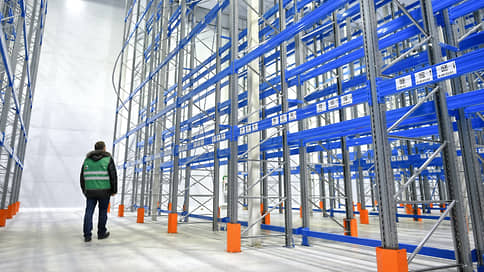Logoparks did not work out for developers – Newspaper Kommersant No. 185 (7386) dated 06.10.
[ad_1]

The reduction in demand for logoparks in Moscow and the Moscow region this year has already affected the pace of construction. In January-September 2022, developers launched projects with a total area of 1.9 million square meters. m is almost two times less than a year ago. The reduction in new construction this year will lead to a drop in 2023 to a historic low in the number of new facilities put into operation, market participants expect. If demand recovers in the future, this situation threatens with a shortage of vacant space.
In January-September 2022, the construction of logoparks with a total area of 1.9 million square meters began in Moscow and the Moscow region. m, although at the end of last year, developers announced plans for 5.5 million square meters. m, calculated at Knight Frank at the request of Kommersant. Ricci Warehouses has even more modest estimates: according to analysts, since the beginning of this year, developers have begun construction of facilities with a total area of only 350 thousand square meters. m. For comparison: in the nine months of last year, projects were launched in warehouse real estate for 3.5 million square meters. m, that is, 1.8 times more than in the same period of this year, Knight Frank notes.
The reason for the current reduction in construction volumes is a decrease in demand, says Viktor Afanasenko, director of the warehouse real estate department at Nikoliers. According to Knight Frank, in January-September 2022, the demand for logistics real estate in Moscow and the Moscow region decreased by 2.5 times year-on-year, to 758 thousand sq. m. At the same time, adds Mr. Afanasenko, in 2020-2021 there was a boom in this segment, including due to the development of online trading during the pandemic.
Over these two years, retailers, including e-commerce, logistics operators and distributors, due to a shortage of warehouses, could not find the required volume of ready-made space – this led to an increase in demand for facilities built for specific customers under the built-to-suit (BTS) scheme , recalls the head of the research and analytics department at IBC Real Estate Ekaterina Nogay. But already this year, she continues, retailers and e-commerce companies have temporarily postponed development plans. As a result, the demand for BTS facilities decreased nine times year-on-year and amounted to only 71 thousand sq. m. m.
Russian retailers were able to close part of their warehouse infrastructure needs at the expense of the space that was freed up by foreign companies that left Russia, explains Dmitry Gerastovsky, director of Ricci Warehouses. In addition, in previous periods, retailers rented a sufficient amount of space, and now they sublease these premises to reduce their costs during the crisis, adds Konstantin Fomichenko, director of industrial and warehouse real estate at Knight Frank.
Developers are in no hurry to build and speculative properties intended for sale or lease on the open market. Alexandra Shakola, deputy director of leasing and marketing for Radius Group, says that the company received permission last week to build such a 30,000-square-meter warehouse. m, but the company does not plan to start construction yet. They expect demand to recover.
The expediency of starting new construction was influenced by the increased cost of construction, which, according to Viktor Afanasenko, reached 62-68 thousand rubles. for 1 sq. m. In addition, in the spring the key rate of the Central Bank was at a high level – this did not allow developers to attract loans at the optimal cost, adds Mr. Fomichenko.
The decline in construction this year will lead to a drop in the level of commissioning of new logoparks in Moscow and the Moscow region in 2023 to a historical minimum, Dmitry Gerastovsky expects. With the restoration of demand, according to the forecasts of the general director of Orientir Andrey Postnikov, this will lead to a shortage of free logoparks.
[ad_2]
Source link





